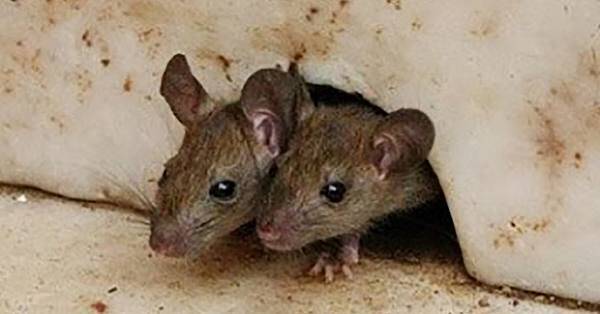How to Get Rid of Mice

To address a mouse problem, consider employing traps, deterrents, and, if necessary, poison. Acquiring a cat may also serve as a long-term solution. Prompt action is crucial due to the health risks posed by these rodents.
Mice seek out human residences for sustenance, warmth, and refuge. Their rapid reproduction and potential to carry diseases make them a concern.
These rodents can be destructive, gnawing on electrical wires, personal belongings, and even penetrating food storage, leading to contamination. The presence of mice is often indicated by their droppings, which are a health hazard due to the pathogens they carry.
Continue reading to learn strategies for eliminating mice from your dwelling and measures to prevent future infestations.
7 Tips to Help Get Rid of Mice
Mice, due to their diminutive size, can navigate narrow openings easily. It’s crucial to seal even the smallest cracks, like those measuring a quarter-inch, to prevent their entry.
Identifying the favored spots of mice in your house is key to eliminating them efficiently. Their distinctive black fecal pellets indicate their presence. Keep food away from these zones and store all edible items in chew-proof containers.
Once you’re aware of the mice’s haunts, consider these strategies to eradicate them:
1. Acquire a Cat:
If no family member has cat allergies, getting a cat can be the simplest way to eliminate mice. Alternatively, use cat litter in frequented areas as a deterrent, ensuring it’s out of reach of children.
2. Utilize Essential Oils:
Peppermint oil and clove oil have odors that repel mice. Soak cotton balls in these oils and place them in mouse-prone spots like drawers, cupboards, and entryways, though this method is more effective when combined with others.
3. Deploy Humane Traps:
These traps keep mice alive for release elsewhere. Position them in areas frequented by mice and check them each morning, as mice typically forage at night. Use enticing baits like peanut butter, cheese, or buttered popcorn.
Ensure to release captured mice at least a mile from your home, away from populated areas, and avoid direct contact to prevent potential diseases.
4. Experiment with Hot Pepper:
Avoid poisonous baits and opt for a concentrated hot pepper spray in areas inaccessible to children and pets but frequented by mice, such as under stoves or behind cabinets.
5. Construct DIY Humane Traps:
Crafty individuals can fashion simple live traps from household items, like using a bucket, stick, and plastic cup or a large glass balanced on a coin, baited with peanut butter.
6. Seal Cracks with Steel Wool:
Fill mouse-friendly gaps with steel wool, which they find impossible and unpleasant to chew.
7. Use Duct Tape as a Barrier:
Identify and cover entry points like pipes under sinks or wires at the back of cupboards with duct tape.
For severe infestations, humane trapping is ideal. Generally, traps are safer than poison for children and pets. However, in extreme cases posing risks to your family, consider spring traps or professional pest control for a quicker solution.
Mice Spread Disease
Mice are often regarded as small and endearing creatures, with some individuals choosing them as pets. However, the primary concern about mice entering your home is the potential for disease transmission. These diseases include:
1. Hantavirus Pulmonary Syndrome and Lymphocytic Choriomeningitis: Inhaling dust contaminated with mouse urine and droppings can lead to respiratory and neurological illnesses.
2. Leptospirosis: This bacterial infection can spread through water containing traces of infected animal urine, posing a risk to both humans and pets. If mice are present in your home, it’s advised to remove and clean pet water bowls nightly.
3. Salmonellosis: Caused by bacteria present in mouse feces, salmonellosis can affect individuals of all ages but poses a particular risk to children under 5 years old.
4. Plague, Typhoid, and Pox (Rickettsial Infections): Diseases such as plague, typhoid, and certain pox infections can be transmitted by mouse fleas and mites. While treatments are available, prevention is key by minimizing contact with mice and their excretions.
Mice leave urine and feces during their nightly activities, necessitating thorough cleaning of areas they frequent. When encountering heavily contaminated areas, wear a mask and gloves while cleaning, and practice diligent hand hygiene afterward to reduce the risk of disease transmission through direct contact or accidental ingestion.
Prevent More Infestations
The best way to prevent mice infestations is to keep your home clean. Here are some tips:
- Make it a rule that all eating happens at the table.
- Store food items such as grains, seeds, beans, and flour in glass or metal containers.
- Wipe eating and cooking surfaces at the end of the day. Vacuum up any bits of food that fall on the floor, under furniture, and around appliances.
- Remove your pet’s food bowl after meals and seal pet food bags
Conclusion Facts
Mice carry diseases, so it’s important to take immediate action. Their rapid rate of reproduction makes controlling an infestation more difficult the longer you delay. Use traps and deterrents to eliminate mice from your home promptly.
The duration to eradicate mice can vary depending on the severity of the infestation, ranging from a day to a couple of weeks. During this trapping period, ensure thorough cleaning of surfaces that mice might climb on at night to reduce health risks.